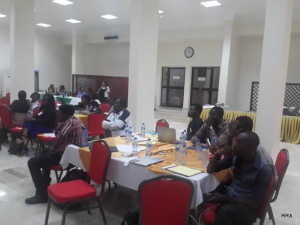7th Africa Conference on Sexual Health and Rights
Accra, Ghana, February 8 – 12, 2016
Conference Announcement
The African Federation for Sexual Health and Rights (AFSHR) is pleased to announce the 7th Africa Conference on Sexual Health and Rights with the theme “Realizing Demographic Dividend in Africa: the Critical Importance of Adolescents and Youth Sexual and Reproductive Health and Rights”. The conference will be held in Accra, Ghana from February 8-12, 2016, and hosted by Curious Minds, Ghana.
The conference is part of a long-term process of building and fostering regional dialogue on sexual and reproductive health and rights that leads to concrete actions and enhance stakeholders’ ability to influence policy and programming in favour of a sexually- healthy continent. AFSHR has collaborated with several Core Conference Partners (CCP) and other key stakeholders in sexual and reproductive health over the past twelve years to organise this regional conference. The conference was previously held in Johannesburg, South Africa (2004); Nairobi, Kenya (2006); Abuja, Nigeria (2008); Addis Ababa, Ethiopia (2010); Windhoek, Namibia (2012); and Yaoundé, Cameroon (2014).
Conference objectives are:
- Identify promising/best practices on adolescents and youth sexual and reproductive health with a focus on effective responses to youth vulnerabilities
- Facilitate knowledge management and programming to enhance adolescents and youth agency.
- Enhance adolescents and youth policies and programmes in regional and global development agendas.
- Propose actions to promote adolescents and youth sexual and reproductive health and rights in the implementation of the ICPD Beyond 2014, the Post-2015 Development Agenda and Agenda 2063.
Participants
About 1,000 participants representing various stakeholder and constituency groups are expected at the conference. These include policy makers, development partners, civil society organisations, and academia, media, adolescents, youth, and duty bearers.
Call for Abstracts
Visit the conference website www.africasexuality.org. for abstract submission information and deadline.
Registration
Registration information can be found on the conference website www.africasexuality.org. The registration fee is USD 200. Early bird registration closes on December 15, 2015. Registration after December 20, 2015 will attract additional charges
For detailed information visit : www.africasexuality.org.
RRA





